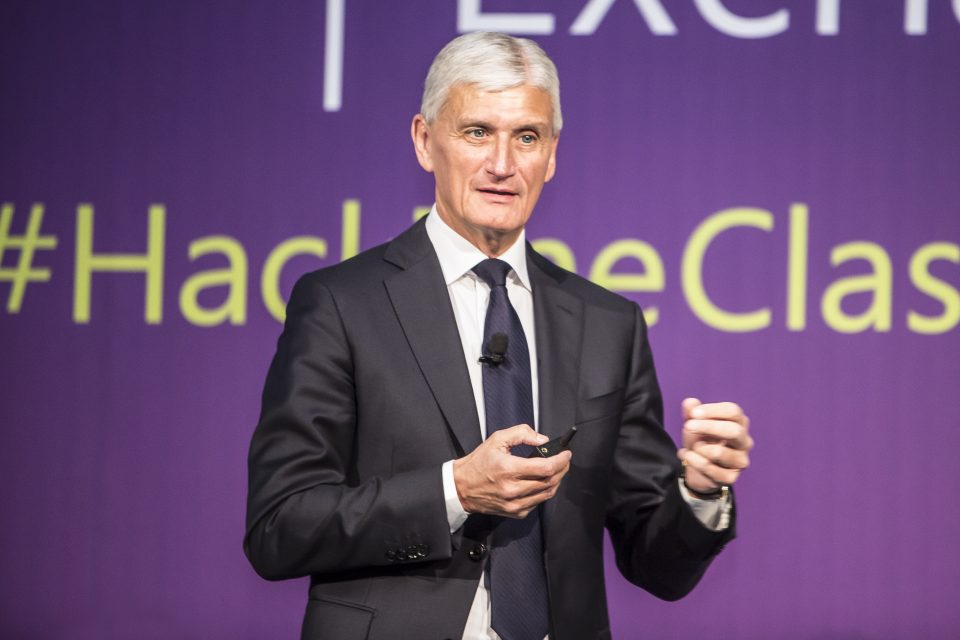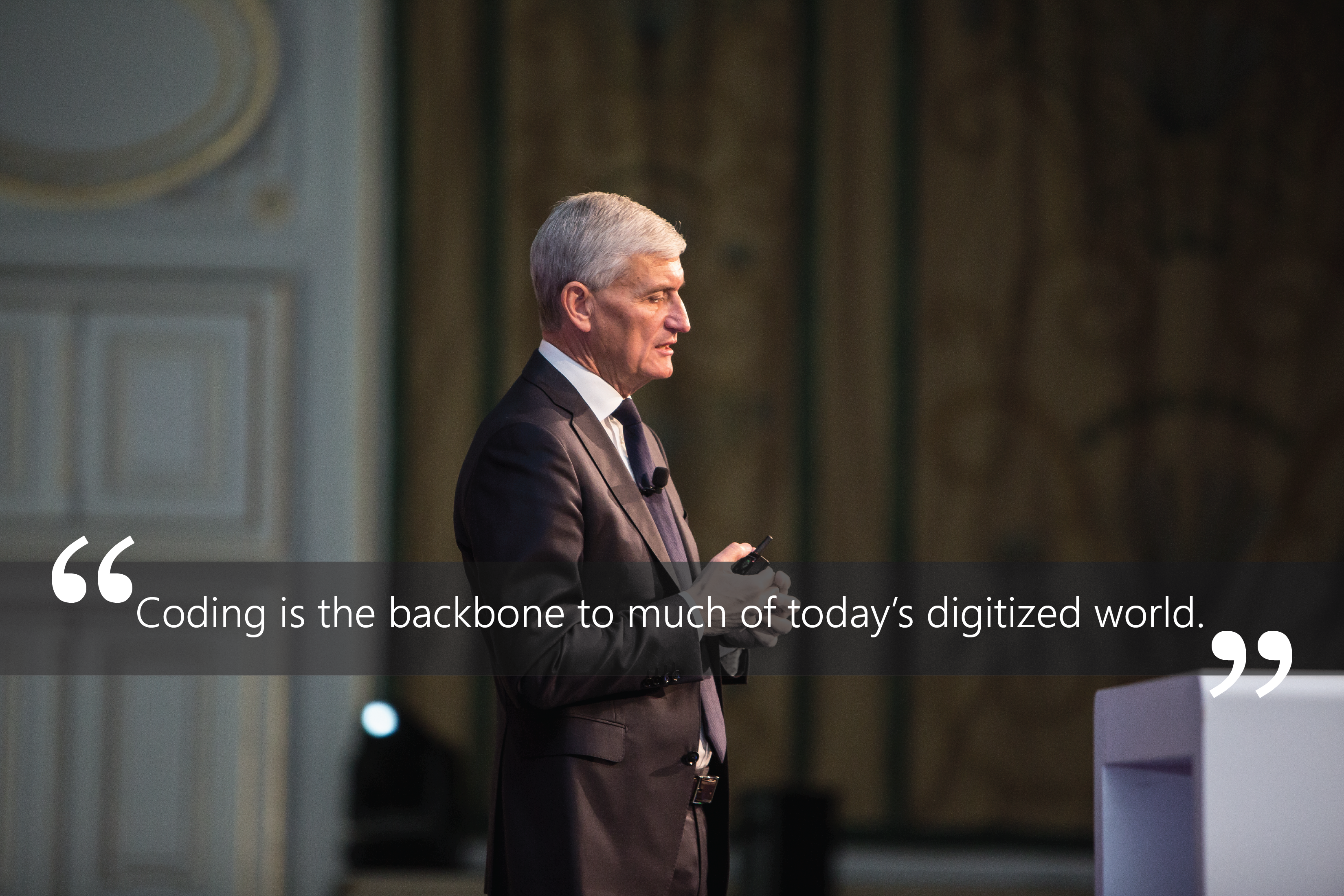By Don Grantham, President, Microsoft Central and Eastern Europe (CEE)
This week we are hosting the 2016 Microsoft Global Educator Exchange in Budapest, Hungary. It is an opportunity for educators from across the world to come together, share ideas and collaborate on new classroom tools and teaching methods for students.
Microsoft and educators are working hand-in-hand to help address many common goals: ensuring students have the necessary skills to become tomorrow’s innovators and leaders. Tackling youth unemployment, which has become a growing predicament across Europe. Sparking a greater interest in science, technology, engineering and math, in both boys and girls, as our modern workforce digitally transforms into a new era.
Everything begins with education. As Nelson Mandela said, “it’s the most powerful weapon which you can use to change the world”. This is truer today than ever before – and it is a responsibility that is shared by Microsoft and educators to empower today’s students in every classroom, with the access to tools and educational methods that will allow them to transition seamlessly, from the classroom to the workplace.
Today’s skillset required by most businesses and organizations is very different from what it was a decade ago. Knowledge of computer science and digital skills will help current and future generations not only thrive in this digital world but also advance Europe’s economy. The European Commission has predicted that, in the near future, 90% of all jobs will require some level of digital skills – and that’s not technology specialists, but everyone who works. The Commission has also stated that, by 2020, there could be as many as 825,000 unfilled workplace vacancies for information and communications technology professionals.
“Although clearly a challenge, this also presents us with an opportunity. If we can assist students in building their digital skills we can help them to fill these vacancies, find their place in the new world of work and reverse such high levels youth unemployment.”
We’ve been proud to partner with educators around the world to promote computer science and coding skills in and outside of the classroom. Through initiatives such as European Code Week and Hour of Code, we’ve seen many children – and a few adults – take the first steps towards demystifying coding. In Europe alone over eight million participants took part in more than 36,000 coding events.
Momentum is growing. This week we celebrate International Women’s Day by inspiring young women around the world in our #MakeWhatsNext campaign. This video shows the lack of awareness girls today have about women inventors and reminds them to celebrate those women’s accomplishments and be encouraged to follow in their footsteps. In conjunction with International Women’s Day we also announced a Patent Program focused on inviting select female inventors to receive support in patenting their ideas. Did you know that women hold only 7% of patents?
In addition, as of this week and until the end of April, we will drive multiple activities across Europe, to inform and inspire young girls around the potential of STEM studies and a career path in technology, by hosting computer science and technology events where high school and university age young women can get in direct touch with the world of Microsoft, participate in trainings, share their thoughts and ideas in a relaxed and open environment. Through their participation, they can try coding, see in practice all that they can achieve with computer science skills and get a real glimpse of the future possibilities open to them.
As technology becomes more ubiquitous and accessible to nearly everyone, through the cloud and a multitude of devices, we will continue to unlock opportunities for increasingly more students across the world. It is our firm commitment to work towards eliminating the skills and gender gap in the ICT sector. To that end, we will remain focused on achieving our goal of helping 1.4 billion students globally to achieve more through immersive and inclusive learning experiences. It’s inspiring to see an increasing number of boys and girls become passionate about computer science – many of whom are in the early stages of education.
Office 365, apps such as OneNote and tools like Sway are already helping teachers and students to share knowledge and work in new ways. Games such as Minecraft, or resources such as Microsoft coding packs, are also helping pupils to create and collaborate. This short video highlights the thoughts of young students explaining why they got involved in computer science.
Together with teachers who share our passion for equal opportunities, growth and excellence, we are helping every student to make, design, invent and build the future they deserve. From a technology, as well as an overall perspective, continued investment in education is absolutely critical to the success of society – and our commitment is very real in Microsoft, as we work hard to empower every individual and every organization on the planet to achieve more.
To learn more about how Microsoft YouthSpark is helping young women who are already changing the world, please visit makewhatsnext.com.





